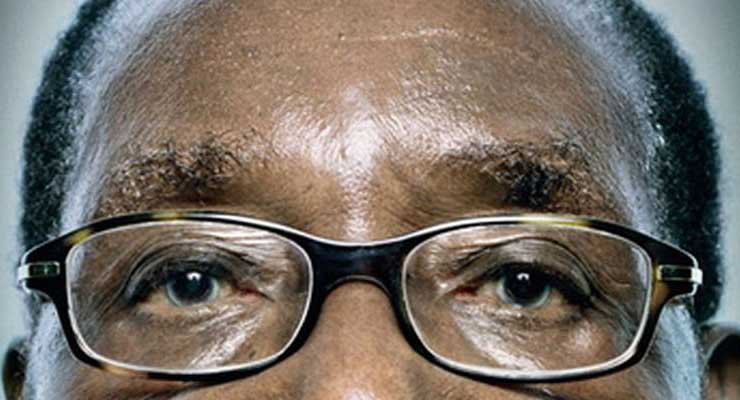
Chaos rising as dangerous Zimbabwe instability cause for concern for life after aging dictator | Democracy, elections and voting at Democracy Chronicles
The following article was written by Freedom House’s Kate Hixon, the Africa Program Officer:
As the economy worsens and infighting to succeed 91-year-old president Robert Mugabe spills into public view, the veneer of normalcy that has prevailed in Zimbabwe over the past several years is collapsing. If steps are not taken to halt the breakdown, the situation could deteriorate even further.
After the chaotic 2008 elections, a low point in the country’s struggle for democracy, conditions had appeared to stabilize. A power-sharing government promised reforms and brought horrific inflation under control, and the political violence linked to the 2008 balloting subsided. Democracy supporters hoped that subsequent elections held under a new constitutional framework would put longtime opposition leader Morgan Tsvangirai and his Movement for Democratic Change (MDC-T) in a stronger position. But President Mugabe retained his post in the July 2013 elections, garnering 61 percent of the vote, and his Zimbabwe African National Union–Patriotic Front (ZANU-PF) party secured a two-thirds majority in Parliament.
While the old guard was brought back into the ministries, ZANU-PF made no new moves to clamp down on civil society or implement especially oppressive policies. The International Monetary Fund (IMF) began to reengage Zimbabwe, the European Union lifted more sanctions, and Mugabe took the helm of both the Southern African Development Community (SADC) and the African Union.
Factional Feuds
This perceived stability was shattered last year when First Lady Grace Mugabe entered the political scene. Previously known more for her extravagant overseas shopping sprees than any role in government, she received a PhD in September, apparently just two months after she enrolled, and was nominated in December to lead the ZANU-PF Women’s League. From her new position of power she attacked her husband’s greatest perceived political threat, Vice President Joice Mujuru. After Mujuru’s allies in the party gained ground in the 2013 provincial elections, she had become the frontrunner to succeed the president. Grace Mugabe was deployed to beat back this rival, touring the country and making accusations against Mujuru at ZANU-PF rallies. She was fired as vice president during a December party congress, and finally expelled from the party in April 2015 for allegedly plotting against Mugabe.
In a variety of ways, the president’s efforts were uncharacteristically sloppy. In sending his wife out into the provinces, he gave her free rein to engage in fear mongering and make inflammatory statements. In eliminating Mujuru and her supporters at the ZANU-PF congress, he blatantly disregarded the party constitution—a break from his preferred method of using the cover of law and procedure to manipulate outcomes. These rougher tactics are certainly not unprecedented for Mugabe, but they are indicative of hasty decisions to protect his hold on power rather than a calculated strategy.
Mujuru’s expulsion is not the only one of note. Didymus Mutasa, Kudakwashe Bhasikiti, and Temba Mliswa, all long-serving ZANU-PF officials, have also been purged, and they are not likely to retire quietly. The suspension of over 140 additional party members, which bars them from holding any leadership positions, demonstrates the depth of Mujuru’s support and the seriousness of the threat she represents. The cabinet, reshuffled at the beginning of the year, was again reshuffled in early July, and it is clear that the new vice president and former defense minister, Emmerson Mnangagwa, is struggling to line up enough support within the party and the security forces to hold the regime together in the event of a sudden leadership change.
Signs of Weakness
Among other signs that a crisis is brewing, democracy activist Itai Dzamara was abducted in March and remains missing. While forced disappearances used to be common in Zimbabwe, after 2008 activists were more likely to face intimidation or arrest. With various factions of ZANU-PF vying for favor and control, it is possible that Dzamara’s disappearance was not ordered from the top, but such a breakdown in the chain of command would itself be a troubling sign of things to come.
Furthermore, Zimbabwe’s economy is sagging in the absence of sound management, reviving memories of the desperation that characterized the period leading up to 2008. Street vendors line the avenues of Harare, while storefronts and warehouses are vacant. Recognizing the image this projects, the government is seeking a way to remove the vendors and hide evidence of the struggling economy.
Finally, there are the recent parliamentary by-elections, held to fill spots vacated by former MDC-T members who split from their party and ZANU-PF members who were expelled. Because MDC-T refused to participate, ZANU-PF’s greatest challenge came from independents thought to be aligned with Mujuru. According to observers from the Zimbabwe Election Support Network, the campaign period “was marred by incidents of violence, intimidation, and vote buying,” and intimidation was also noted at various polling stations on election day. Given that ZANU-PF faced no major opponents and no obvious threat to its hold of power, the level of effort it put into securing victory suggests a weak and frightened party.
The Wisdom of Early Intervention
Indeed, while Mugabe and ZANU-PF are in some ways more powerful than ever, the instability within the party caused by Mujuru’s expulsion, coupled with growing economic problems, has put the regime at risk. If the early warning signs go unheeded, they could lead to political violence as rival factions compete for supremacy.
The international community, and SADC in particular, should take steps now to stabilize Zimbabwe ahead of any political transition. Waiting until there is an open bid for power, either from Mujuru outside of an election cycle or through a sudden vacancy in the executive, is not an option, as any response would be too late to have a meaningful impact on the lives of Zimbabweans, who are already suffering.
Leave a Reply